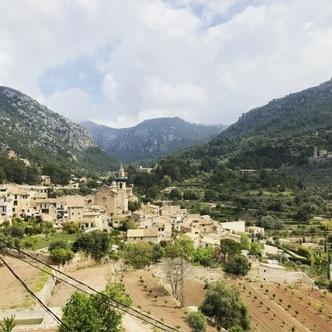What role does sustainable land management play in controlling erosion on Mallorca?
Similar Topics
sustainable land management
erosion control mallorca
mediterranean environment
terracing and contour
native vegetation planting
sustainable grazing management
soil stabilization techniques
water retention improvement
Sustainable land management plays a crucial role in controlling erosion on Mallorca, an island with a delicate Mediterranean environment characterized by hilly terrain and variable rainfall. Due to its steep slopes and fragile soil structure, Mallorca is particularly vulnerable to erosion, especially during heavy rainstorms that can rapidly wash away topsoil. By adopting sustainable land management practices, local farmers and landowners help stabilize the soil, reduce surface runoff, and maintain the natural landscape, which in turn protects agricultural productivity and preserves the island’s natural beauty.
One of the key approaches to sustainable land management in Mallorca involves terracing and contour plowing, which slow water flow and minimize soil displacement. Additionally, planting native vegetation and cover crops helps hold the soil together with their root systems, preventing it from being carried away by wind or water. These strategies also encourage biodiversity by supporting native plant and animal life, which contributes to a healthier ecosystem overall. Sustainable grazing management is another important factor, as it prevents overgrazing that can leave soil exposed and more susceptible to erosion.
Moreover, sustainable land management not only protects the soil but also improves water retention, which is beneficial during the dry summer months typical of Mallorca’s climate. By maintaining vegetation cover and healthy soil structures, these practices reduce the risk of flash floods and landslides, safeguarding both rural communities and the island’s infrastructure. The integration of traditional knowledge with modern conservation techniques ensures that land use remains productive without compromising the environment, making sustainable land management a vital tool in maintaining Mallorca’s ecological and economic balance for the future.
One of the key approaches to sustainable land management in Mallorca involves terracing and contour plowing, which slow water flow and minimize soil displacement. Additionally, planting native vegetation and cover crops helps hold the soil together with their root systems, preventing it from being carried away by wind or water. These strategies also encourage biodiversity by supporting native plant and animal life, which contributes to a healthier ecosystem overall. Sustainable grazing management is another important factor, as it prevents overgrazing that can leave soil exposed and more susceptible to erosion.
Moreover, sustainable land management not only protects the soil but also improves water retention, which is beneficial during the dry summer months typical of Mallorca’s climate. By maintaining vegetation cover and healthy soil structures, these practices reduce the risk of flash floods and landslides, safeguarding both rural communities and the island’s infrastructure. The integration of traditional knowledge with modern conservation techniques ensures that land use remains productive without compromising the environment, making sustainable land management a vital tool in maintaining Mallorca’s ecological and economic balance for the future.
🧩 Related Questions
Related Question
How is sustainability practiced in Mallorca through the use of almond tree byproducts?
Related Question
How does the spiritual philosophy of the Carthusian order continue to affect Mallorca’s cultural identity today?
Related Question
What role do wind turbines play in reducing the environmental impact of farming on Mallorca?
